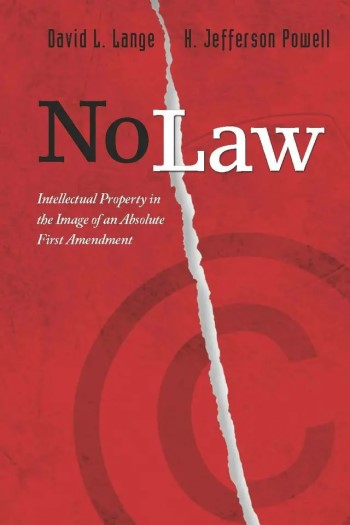We will be closed from 5pm Thursday 17th April for the Easter Bank Holidays, re-opening at 8.30am on Tuesday 22nd April. Any orders placed during this period will be processed when we re-open.

The original text of the Constitution grants Congress the power to create a regime of intellectual property protection. The first amendment, however, prohibits Congress from enacting any law that abridges the freedoms of speech and of the press. While many have long noted the tension between these provisions, recent legal and cultural developments have transformed mere tension into conflict. No Law offers a new way to approach these debates.
In eloquent and passionate style, Lange and Powell argue that the First Amendment imposes absolute limits upon claims of exclusivity in intellectual property and expression, and strips Congress of the power to restrict personal thought and free expression in the name of intellectual property rights. Though the First Amendment does not repeal the Constitutional intellectual property clause in its entirety, copyright, patent, and trademark law cannot constitutionally license the private commodification of the public domain.
The authors claim that while the exclusive rights currently reflected in intellectual property are not in truth needed to encourage intellectual productivity, they develop a compelling solution for how Congress, even within the limits imposed by an absolute First Amendment, can still regulate incentives for intellectual creations. Those interested in the impact copyright doctrines have on freedom of expression in the U.S. and the theoretical and practical aspects of intellectual property law will want to take a closer look at this bracing, resonant work.